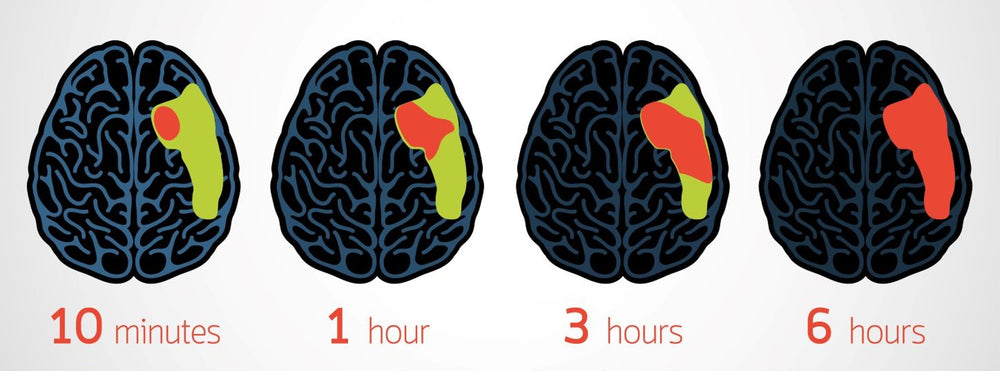Live fast. Die fast. It doesn’t always work out that way…

As a cardiologist, I often hear a distinctly male viewpoint about heart disease that goes something like this: “I don’t care much about my heart health, Doc. I think a heart attack is a great way to die. I mean, way better than cancer, right?”
Sudden cardiac death is definitely one outcome of a heart attack. But what if you don’t die? What if you sustain enough heart muscle damage to reduce heart function instead … and live? The end result could be a lifetime of leg swelling, shortness of breath, huge medication lists (with all their side effects), stents or bypass surgery, and even an implanted defibrillator! Oh – and just in case you’re still thinking about the cancer thing – the survival rates of patients with heart failure due to reduced heart function are about the same as those with cancer.
And if that’s not bad enough, if you have risk factors such as high blood pressure, high cholesterol, obesity, and/or diabetes, there’s no guarantee that your health crisis is even going to be a heart attack! Those risk factors also put you at a high risk of stroke – and you probably don’t need me to tell you that a stroke is something you DEFINITELY don’t want to experience.
Strokes are not only the 5th-leading cause of death, but they’re also one of the biggest causes of long-term disability. That’s because when you have a stroke, blood flow to the brain becomes abnormal, causing damage or death of brain cells -- often within minutes. In fact, some people have started referring to strokes as “brain attacks.” Strokes cost the healthcare system $34 billion a year, according to the Centers for Disease Control and Prevention (that’s before you add in the cost of disability care and lost work, which push the total over $100 billion). And they’re more common among men.
People are also getting strokes at younger ages -- no surprise, since people are experiencing high blood pressure, high cholesterol, obesity, and diabetes at younger ages.
And, while deaths from strokes had been on the decline in years past, that trend has ended in 75 percent of states, according to the CDC.
All of the news is not dire, however: 80% of strokes are preventable. And if you’re a regular reader of this blog, you already know how to prevent them: The same heart healthy habits that reduce your risk of heart attack also reduce your risk of stroke. That means avoiding smoking and secondhand smoke, exercising, controlling obesity, diabetes, blood pressure and cholesterol -- and, of course, eating a plant-based, colorful diet that includes nutrients like those found in Step One Foods.
In addition, it’s important to know the signs of a stroke, since getting help immediately can reduce the chances of brain damage. According to the CDC, you should look for:
- Sudden numbness or weakness in the face, arm, or leg, especially on one side of the body.
- Sudden confusion, trouble speaking, or difficulty understanding speech.
- Sudden trouble seeing in one or both eyes.
- Sudden trouble walking, dizziness, loss of balance, or lack of coordination.
- Sudden severe headache with no known cause.
Time is of the essence! Stroke treatments have the best chance of working if applied within three hours of the first symptoms. But for heaven’s sake, if you’re experiencing one or more of these, do not drive yourself to the hospital or let someone else drive you! Call 9-1-1 for an ambulance so that medical personnel can begin life-saving treatment on the way to the emergency room.
And note the time when any symptoms first appear. This information helps health care providers determine the best treatment plan.

Tested & Proven Results.
- Cardiologist formulated
- Supported by over 500 publications
- Clinically-proven, in a double-blind randomized trial with Mayo Clinic and The University of Manitoba
80% of participants lowered their cholesterol in just 30 days. With just two servings per day, Step One Foods offers a proven-effective way to naturally lower LDL (bad) cholesterol.
Get heart health tips and articles like this, delivered right to your email.
New articles every week.
You may also like...

The Most Misunderstood Heart Number (Plus Your Tune-Up Checklist)

You don’t need to avoid foods with cholesterol…except for these



